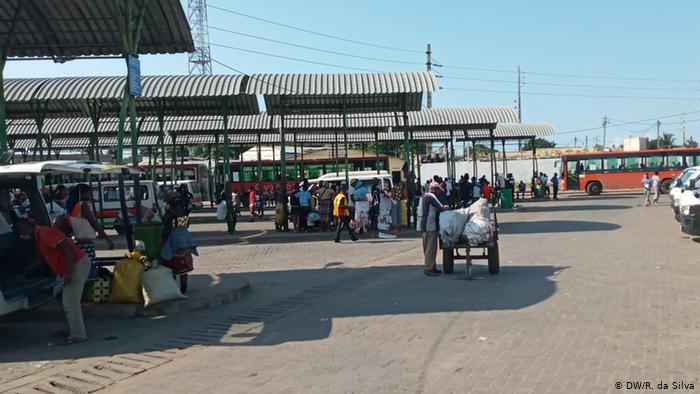Mozambique: Polio vaccination campaign exceeds target, over 19M children vaccinated
One month into the state of emergency in Mozambique. What now?

Photo: DW
With one day left of the month-long Covid-19 state of emergency in Mozambique, the technical commission is calling for better enforcement of the restrictions, while civil society warns of the consequences of prolonged confinement.
Almost a month after Mozambique entered a state of emergency, views are mixed. The Ministry of Health says the implementation of prevention measures in institutions and the suspension of events went well, but authorities worry that people continue to roam the streets, avenues and roads.
Roughly three days before completing the first stage of its obligation to monitor the measures, the technical-scientific commission created to advise the President of the Republic on Covid-19, says it is necessary to intensify inspections.
Regarding home confinement, Minister of Health Armindo Tiago, who leads the commission, explains that the challenge involves “adequate supervision, since issues persist as to full compliance with this measure”.
The commission regrets the fact that many students, who were supposed to remain at home while schools are closed, continue to violate the state of emergency, and that large crowds of people still gather at, for example, funeral ceremonies.
Flights bring unauthorised passengers
Minister Tiago also highlights the continued entry of people into the country, despite the suspension of visas.
“There is still some inflow of passengers via companies such as Ethiopian Airlines, which carries passengers, especially those stranded abroad, but sometimes brings other passengers as well,” the minister complained.
Is mandatory confinement justified?
Civil society organisations in Mozambique, such as the Institute for Multiparty Democracy (IMD), say however that there is neither any need nor the conditions for mandatory confinement, despite the rise in the number of Covid-19 cases.
In a report published on Monday (27.04), the organization cites Bishop Dinis Matsolo, an IMD contributor, “for whom a possible advance to Stage 4 will further limit the opportunity for a significant segment of society to secure the basic means of survival, as they depend on the informal sector to access daily income to provide for their respective families”.
The IMD suggests strengthening the role of community leaders to support awareness-raising actions, manage social tension and monitor citizens who do not comply with the new coronavirus prevention measures.
The organisation also says that the government should take localised measures in order to track and control the situation, especially in the Afungi peninsula in Cabo Delgado, home to more than 50% of cases registered in Mozambique.
Police violence
The police have also been the target of harsh criticism for the way they have monitored implementation of the state of emergency. In Sofala province, two officers are in detention, accused of having beaten a citizen to death following an alleged violation of the state of emergency. Political analyst Tomás Vieira Mário says complaints about the corporation’s violent performance are rising “to a crescendo” in Beira.
“That barbaric, murderous act of assaulting a defenceless citizen has no explanation. It was not the case for that, but, as violent as it was, that case may be food for thought… what is going on with our police?”
The Police of the Republic of Mozambique condemned the incident, and promised to bring the two agents to justice.
This week, the President of the Republic, Filipe Nyusi, is expected to decide whether or not to extend the state of emergency.












Leave a Reply
Be the First to Comment!
You must be logged in to post a comment.
You must be logged in to post a comment.